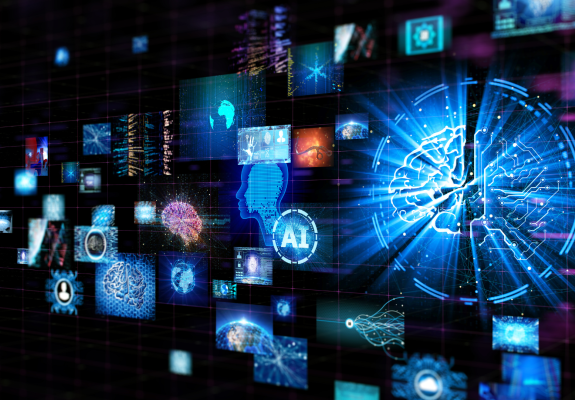The OECD Report: The Impact of Artificial Intelligence on Jobs
Navigating Opportunities and Challenges
In just four years, the landscape of the global workforce has undergone significant transformations, fueled by rapid advancements in Artificial Intelligence. The Organisation for Economic Co-operation and Development (OECD), in its latest Employment Outlook, sheds light on the impact of AI on the labor market. As AI becomes increasingly prevalent, it offers both promising opportunities and concerning challenges for workers and employers alike.
The OECD defines AI as a machine-based system capable of influencing the environment by producing outputs for specific objectives. It perceives, analyzes, and infers, presenting options for outcomes, and can operate with varying levels of autonomy. AI's progress is remarkable, with advancements in generative AI, computer vision, reasoning, and problem-solving. This exponential growth is exemplified by AI's ability to answer a substantial portion of literacy and numeracy questions in the OECD Survey of Adult Skills.
The advent of large language models like ChatGPT has led to numerous potential applications of AI in the workplace. From co-authoring scientific papers to assisting in clinical decision-making, AI is already proving its value across various industries. Companies are keen on adopting AI to improve productivity, create competitive advantages, and enhance product or service quality.
Furthermore, AI's entry into the workforce raises questions about its effect on employment. While some fear job displacement, evidence suggests that the impact on employment is not yet substantial. Nevertheless, AI's ability to automate non-routine tasks poses risks for high-skilled occupations. In addition, there are concerns about job quality, with reports of heightened work intensity and stress.
The use of AI in the workplace also introduces ethical concerns, including privacy, fairness, transparency, and accountability. Bias in AI decision-making and the systematization of discrimination are critical issues. According to the OECD, policymakers must ensure AI is developed and used in a trustworthy manner, adhering to human rights and democratic values.

The OECD Employment Outlook emphasizes that the future of work depends on policy decisions made by countries. Urgent policy action is required to regulate AI effectively and protect workers. Proactive measures can promote AI innovation while safeguarding worker rights. Collective bargaining and social dialogue play crucial roles in addressing AI-related issues in the workplace.
As AI impacts tasks and job roles, changing skills demands emerge. Employers must provide training for the development and adoption of AI, but public policies are also needed to incentivize training and ensure a skilled workforce. Policymakers can harness the potential of AI to improve training strategies and delivery.
The fast-paced evolution of AI necessitates continual research and evidence-based policy making. Policymakers should focus on inclusive AI adoption, labor market concentration, public service delivery, and governance structures for trustworthy AI implementation.
To sum up, the OECD's report on jobs and AI highlights the need for balanced optimism as AI continues to shape the world of work. While AI offers tremendous potential to enhance productivity and create new job opportunities, policymakers must act swiftly to address risks and challenges. By promoting ethical AI adoption, investing in skill development, and fostering collective dialogue, countries can steer the workforce towards a positive and inclusive AI-driven future.






